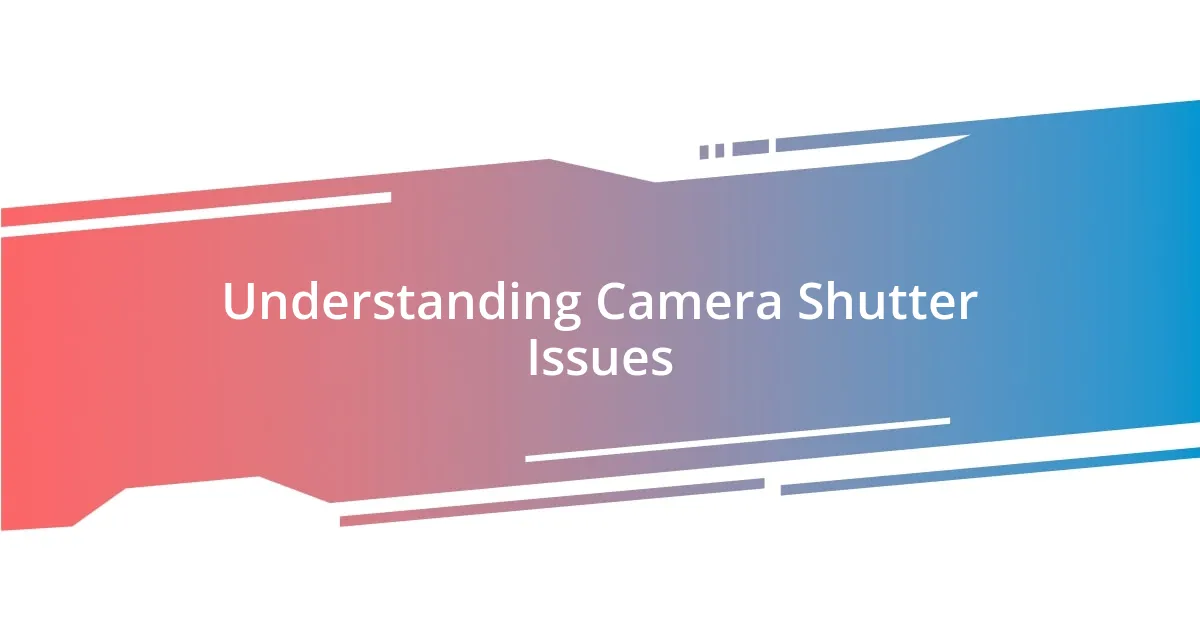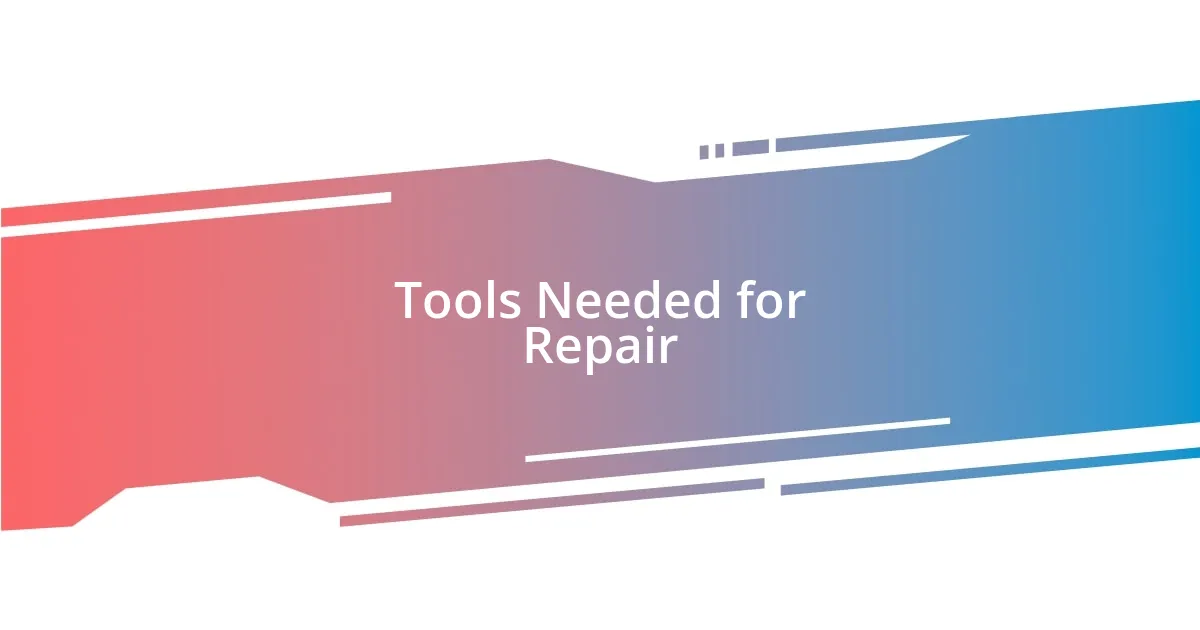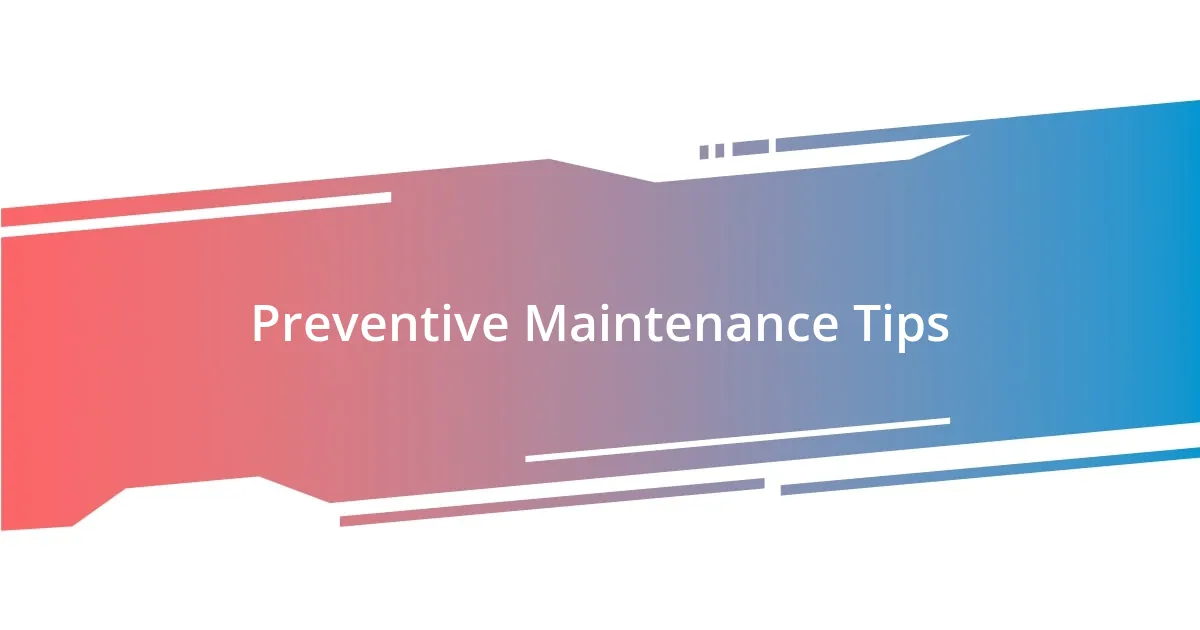Key takeaways:
- Regular maintenance and cleaning can prevent shutter issues and save photographers from future frustrations.
- Identifying symptoms such as inconsistent sounds or delayed response is crucial for early detection of shutter problems.
- Having the right tools is essential for successful repair; quality investments can make a significant difference.
- Knowing when to seek professional help can save time and ensure the camera remains in good working condition.

Understanding Camera Shutter Issues
Understanding the intricacies of camera shutter issues is crucial for any photographer. I remember the sinking feeling when my camera suddenly wouldn’t take pictures during a sunset shoot. It’s frustrating to experience missed moments because of a malfunctioning shutter, isn’t it?
Often, shutter problems stem from either mechanical wear or electronic failures. I once dived deep into diagnosing a stubborn shutter, and it struck me how delicate the balance between technology and craftsmanship truly is. Have you ever thought about the sheer number of components working together just to capture a single frame?
Knowing what causes shutter issues can help prevent them from occurring. I’ve found that regular maintenance can often save a lot of heartache down the line. It makes me wonder—how often do we neglect our equipment, assuming it will always work flawlessly?

Identifying Common Symptoms
Identifying common symptoms of shutter issues is the first step in addressing the problem. I remember the time my camera simply wouldn’t click, leaving me feeling like a child with a broken toy. It’s these moments that teach us to be observant. If something seems off, it’s vital to take notice.
Here are some frequent symptoms to watch out for:
- Inconsistent Shutter Sounds: If the shutter sound is different, louder, or even non-existent, beware.
- Delayed Response: A shutter that hesitates before snapping can indicate a problem.
- Stuck Shutter: You might find your shutter stuck open or closed when you turn on the camera.
- Error Messages: Have you ever seen a camera notification regarding the shutter? Don’t ignore it; it’s a hint!
- Dark Images: If your photos are coming out darker than usual, your shutter could be losing its ability to open or close properly.
Each of these signs sent me on a journey of troubleshooting, often leading to a revelation about both my camera’s condition and my own understanding of the technology. It’s a bit like recognizing when a friend is feeling down; sometimes, you just need to pay closer attention to see what’s really going on.

Tools Needed for Repair
When it comes to repairing a camera shutter, having the right tools is absolutely essential. From my own experience, I learned the hard way that attempting repairs without the proper equipment can lead to further complications. I vividly remember the time I attempted to fix my camera with a simple screwdriver, only to find out I needed specialized tools, which only delayed my project and heightened my frustration. The right tools not only make the job easier but also help ensure the integrity of your beloved camera.
Here’s a quick list of what you might need for a shutter repair job. I’ve broken it down into essential tools and optional ones based on my experience. It’s always best to invest in quality tools. They might seem pricey, but they can save you a lot of heartache and money in the long run. I remember feeling relieved when I finally got the right screwdriver set and lens removal tools – it made all the difference in my repair process.
| Essential Tools | Optional Tools |
|---|---|
| Screwdriver Set | Multimeter |
| Lens Removal Tool | Cleaning Kit |
| Tweezers | Flashlight |
| Lubricant | Magnifying Glass |

Step by Step Repair Process
Once I gathered the necessary tools, the next step was disassembling my camera carefully. I remember the slight anxiety that washed over me as I unscrewed the case. Would I remember how to put it back together? I gently laid out each component on a soft cloth, which not only kept everything organized but also eased my mind. Trust me, a systematic approach helps avoid the chaos of missing screws later!
With the camera opened, I inspected the shutter mechanism, looking for anything obvious like misalignment or debris. It reminded me of doing a spring cleaning in my house; sometimes, you just have to dig deep to find the source of the mess. If anything caught my eye, I wouldn’t hesitate to take a closer look, as small issues can sometimes have big consequences. Was that a tiny speck of dust I spotted? I quickly grabbed my cleaning kit to ensure everything was pristine before diving deeper.
Finally, I replaced any malfunctioning components and applied a suitable lubricant, a critical step I had initially overlooked. I recall my heart racing a bit as I reassembled everything. Would my camera spring back to life? After tightening the last screw, I could barely contain my excitement! The moment I powered it up and heard the familiar click of a healthy shutter made all the effort worthwhile. Isn’t it fascinating how overcoming mechanical challenges can feel like victory in our lives too?

Testing the Shutter Functionality
Testing the shutter functionality is one of the most nerve-wracking moments after a repair. I’ll never forget that rush of both excitement and dread I felt when I finally put everything back together. As I pressed the shutter button, I held my breath, praying that the mechanism would respond. It’s almost like waiting for a friend to text you back after a long conversation—will it work, or will it leave me hanging?
Once I felt a reassuring click, my heart soared. I checked the shutter speed by taking a few test shots in different lighting conditions. I remember the first time I captured an image perfectly, and I couldn’t help but break into a wide grin. It felt like a mini celebration! I also made sure to listen closely to any odd noises. A shutter that seems overly loud or sluggish could signal underlying issues. Have you ever experienced that moment where you think you’ve fixed something, but then you realize it isn’t quite right? That’s a feeling I wanted to avoid.
In testing, I also relied on the camera’s display and shutter count features, which gave me insights into its performance. Reflecting on this, I thought about how important it is to be methodical, not just in repairs but in life too. Are we really testing our limits or just glossing over them? A thorough check can uncover powerful insights into how something functions—or malfunctions—and this applies to so much beyond just cameras.

Preventive Maintenance Tips
Taking care of your camera isn’t just about fixing it when things go wrong; it’s about preventing issues before they arise. I once had a bitter lesson when I noticed my shutter suddenly getting sluggish during a photo shoot. I found myself wishing I had cleaned the camera regularly instead of waiting until something went amiss. Incorporating a routine cleaning schedule can save you from those stressful moments. Regularly blowing out dust from the internal components and carefully wiping the lens can really make a world of difference.
Another tip I’ve learned through experience is to keep an eye on humidity and temperature. I recall a time when I ventured out to shoot in the rain, thinking, “What’s a little moisture?” Well, that innocent thought led to foggy internal components. I quickly realized that investing in a good weather-sealed bag became a priority in my gear setup. I now check the weather forecast before any outing, safeguarding my gear from unexpected conditions. It’s funny how something as simple as being aware of the environment can extend the life of your equipment.
Lastly, don’t underestimate the power of periodic check-ups, similar to how we visit the doctor for a routine physical. Every few months, I make it a point to fully inspect my camera and lenses for wear and tear. I still recall the sense of accomplishment I felt the first time I noticed a slight misalignment in the shutter that I could fix before it became a bigger issue. Just like in life, regular self-assessments can help us catch minor setbacks before they evolve into significant obstacles. Isn’t it reassuring to know that a little preventive maintenance can make your creative journey smoother?

When to Seek Professional Help
It’s not always easy to admit when you need help, especially with something as personal as your photography gear. I remember the moment I struggled with my camera’s shutter sticking; I felt a mix of frustration and hesitation. It’s that nagging feeling of, “Can I fix this myself?” but sometimes, acknowledging our limits can save us from deeper issues down the line. If you find yourself unable to pinpoint the problem or if the device only works intermittently, it might be time to consult a professional.
When I decided to seek expert help for my lens focus issue, I felt anxious—was I giving up too soon? But as I walked into that camera repair shop, I realized I was being logical about my equipment’s well-being. Professionals can diagnose problems that go unnoticed, using tools and techniques I didn’t have. In my experience, explaining my struggles to them felt cathartic, like sharing a weight off my shoulders—I was able to focus on doing what I loved best: capturing images, rather than worrying about machinery malfunctions.
If you’re dealing with problems outside your comfort zone, especially if your shots are consistently out of focus or you’re facing error messages you can’t resolve, remember it’s perfectly fine to ask for help. There’s no shame in it. I learned that my time is valuable, and entrusting the repairs to someone with the right expertise can lead to better, more glorious moments behind the camera. What’s the point of missing out on those picture-perfect opportunities just because the shutter won’t cooperate? Sometimes, seeking help is the best way to keep your passion alive.















